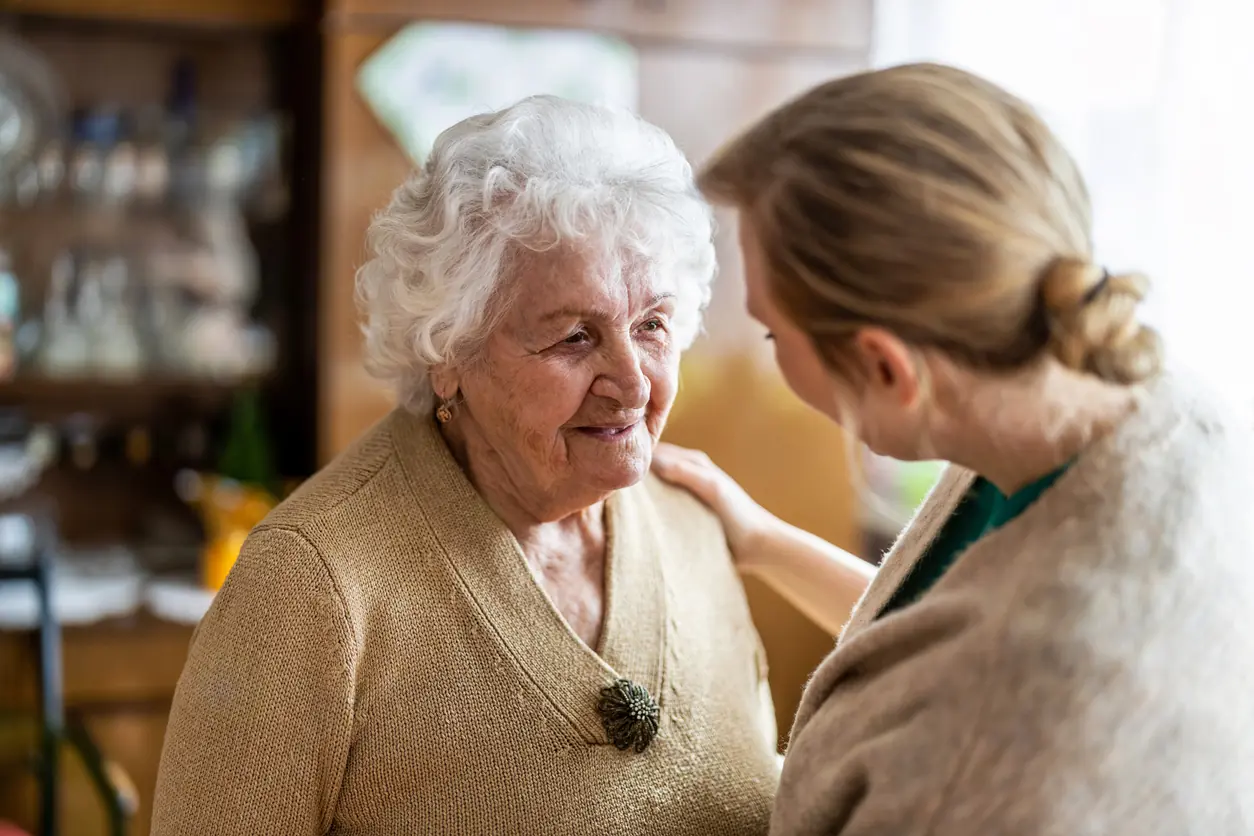
Substance misuse is not just a problem that affects younger people. Problem drinking, drug abuse and addiction can be an issue at any age.
Addiction in the elderly is often overlooked and under-reported, but these things can be every bit as damaging for seniors as they are for anyone. They can also be just as difficult to overcome – and even more so in some cases – without the right help.
What are the Causes of Addiction in the Elderly?
Some older people have a long history of alcohol or drug abuse. These ‘survivors’ typically begin drinking or using drugs when they are young and carry on into later years. Substance misuse becomes part of their daily life, and they can find it incredibly difficult to stop despite – and sometimes partly because of – increasing problems such as isolation and health issues. These people are often termed early-onset substance misusers.
Others develop substance misuse issues later in life. In these late-onset cases, the substance involved tends to be alcohol or prescription drugs rather than recreational drugs, but there are always exceptions. There may be a number of reasons why older people turn to alcohol and other substances, including traumatic life events such as bereavement or serious illness.
Loneliness and isolation can also play a part. Some people struggle with retirement and drugs and alcohol may be used to ‘fill a void’ if they are bored or feel they lack purpose. Pain, mobility issues and ill health can also provide a trigger. In many cases, the person does not start drinking (or using other substances) at this stage, but the frequency and heaviness of usage may increase to problematic levels.
Another issue is an addiction to prescription drugs such as sleeping pills or painkillers. The use of these drugs for recreational purposes is more common in younger age groups, but addiction can still develop even when you start using the medications legitimately and under prescription.
As older people tend to suffer more illnesses and pain, they are more likely to be prescribed potentially addictive medications.
Signs of Addiction in Older People
Addiction and substance misuse can be missed or misdiagnosed in elderly people. Some of the signs and symptoms can be mistaken for other issues such as dementia or general physical and mental deterioration. Substance misuse may sometimes be overlooked because it co-exists with other health conditions.
Another issue is that elderly people may be more socially isolated, with no one noticing how much they are drinking or using drugs. This could especially be the case if they live alone.
There are still signs to look out for, though, including:
- Regular intoxication/seeing them drink or use drugs
- Being secretive or unwilling to discuss their substance use
- Making excuses to drink or use drugs
- Confused states and memory gaps
- Increased clumsiness
- Neglecting their hygiene, home and appearance
- Depression, anxiety and mood swings
- Withdrawing from social activity
It may help to discuss the issue openly, but many older people may be defensive. They may be in denial about the extent of their problem and even the fact that they have one.
Substance Abuse in the Elderly Statistics
Because of the issues mentioned above with regard to substance misuse in the elderly being hidden and/or misdiagnosed, it can be difficult to get an accurate picture of the scale of the problem.
One nationwide survey found that 17% of men and 7% of women aged 65 years or above consumed more than the recommended limit of alcohol, with between 3% -7% estimated to be ‘heavy’ alcohol users. Office for National Statistics (ONS) figures suggested that the prevalence of mild alcohol dependence stood at 17 per 1000 population for ages 65-69 and 9 per 1000 population for 70-74. Additionally, 20% of older people with an alcohol dependency may use other drugs.1
It may also be a problem that is on the rise. The rate of people over the age of 65 admitted to hospitals in England for alcohol-related conditions rose by 7% between 2016/17 and 2019/20.2
Government statistics also show that there has been an increase in age groups of people accessing NHS drug and alcohol treatment services over recent years. In 2020/21, more than half of the people in treatment (56%) were over 40 years old, with 15,466 being aged 60 and over.3 Considering only Class A drugs, an estimated 1% of 60- to 74-year-olds had taken such a drug in the last year, according to ONS figures.4
How is Substance Abuse Treated for the Elderly?
Addiction is not easy to overcome. If you or a loved one has been struggling for years with drugs or alcohol, you might feel that it is too late or too hard to make a change now. In reality, addiction can be successfully treated at any age and it is never too late to quit. Doing so could add years to your life, boost your physical and mental health, save money and generally improve your life in many different ways.
NHS drug and alcohol services are available but inpatient rehab – which is very rarely available on the NHS – is generally safer and more effective. This will place you in a secure and tranquil environment, away from the temptations and triggers of everyday life. If you need to detox, this can be done in a medically supervised setting. This can be very important if you suffer from withdrawal symptoms.
A complete drug or alcohol rehab programme also provides various therapies that tend to be much more intensive than treatments offered on an outpatient basis. This can help you to tackle the root causes of your substance misuse and develop strategies to maintain your recovery and avoid relapse.
Get Help Today
It’s never too late to make a change so if you are worried about your own substance misuse or that of a loved one, get in touch today to find out how we can help.
Posted on Friday, December 9th, 2022 at 4:37 pm in Addiction, Alcoholism, Latest News.






 Call Us
Call Us Contact Us
Contact Us